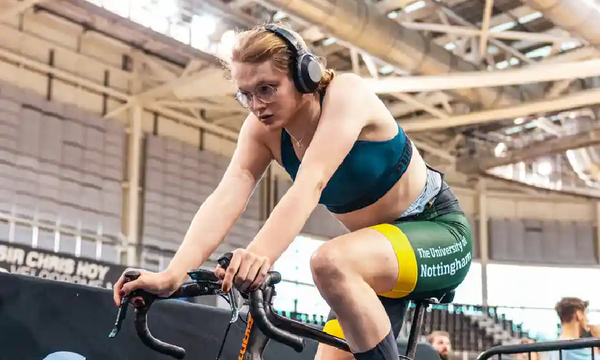

The debate over trans participation in sports has been heavy and heated since its inception and is still far from reaching a point of consensus. Many see the issue as a basic right for trans athletes who’d like to build and exhibit their physical prowess. Still, others believe trans participation creates an unfair playing field due to differences in physical traits attributed to sex. While this topic needs to be treated with great nuance and sensitivity, there have been several athletes who have felt they have been discriminated against on the basis of their gender.
Watch What’s Trending Now!
While only time will be able to tell the eventual stand on the subject, many careers today have already been paused, deterred, or completely stopped altogether. Many trans athletes feel like they are being pushed out of their division due to their identity and have tried their best hand at pushing back in retaliation. One such person is Emily Bridges.
ADVERTISEMENT
Article continues below this ad
Why Emily Stepped Aside
When she was younger, Bridges dreamed of qualifying for the 2024 Summer Olympic Games and representing Great Britain. However, such plans have been disrupted by multiple spanners in the works in the form of new regulations addressing trans participation in sports. British Cycling has banned most trans women from the female category, and Union Cycliste Internationale — the sport’s international governing body — has done the same. So now, as she writes for Vogue, she is hanging up her boots for good.
Read More: 20-Year-Old Cyclist Critically Injured in Collision Due to Reckless Bus Driver
ADVERTISEMENT
Article continues below this ad
While she was a formidable competitor before her transition, Bridges’ Hormone replacement Therapy means she’s no longer able to compete with the men. While HRT does hamper one’s ability to compete, Bridges cited potential emotional instability as the primary reason for her retirement. It’s a sentiment that has been echoed by many trans athletes over the years.
While Bridges has been eligible for the “open” category, she has never competed in the female division. She will undoubtedly spend time advocating for trans inclusion in sports. Still, her career as an athlete is likely over, given the overarching situations she finds herself in. “In spite of the death threats and hateful messages I receive regularly, I’m learning to embrace and be attuned to my body and emotions,” Bridges writes.
Discussion of Trans Inclusion
While the sports world hasn’t come around to accepting trans participation as of yet, changes are on the horizon. The New York Marathon has successfully created a third nonbinary category, where athletes are allowed to participate on their own terms. Meanwhile, as a sport, swimming is also trying to find a path that builds more opportunities to compete for trans athletes.
US champion and Olympic hopeful Nikki Hiltz, a trans nonbinary runner, has echoed sentiments similar to Bridges on the trans participation front. While they are currently competing, Hiltz believes that the idea of them being banned could become emotionally and mentally problematic. Hiltz also claims that they won’t sacrifice themselves for the sport but rather prioritize their relationship with themself.
ADVERTISEMENT
Article continues below this ad
With the number of individuals not conforming to the traditional idea of gender, the debate over trans participation in sports is here to stay. While the general sentiment on the issue will be ever-changing, the rules will reflect the public perception of and attitude toward trans people.
Watch this Story: 68-Year-Old Bicyclist Killed in California Vehicle Collision
ADVERTISEMENT
ADVERTISEMENT
ADVERTISEMENT
ADVERTISEMENT


